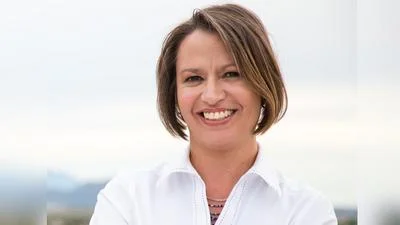Study after study—like the 2004 Bureau of Justice Statistics finding that 70% of incarcerated juveniles came from disrupted homes, or the 2016 University of Pennsylvania link between family instability and violent crime—shows strong families are a bulwark against chaos. But in an age where we can’t even agree on what ‘family’ means, how do we harness that power?
In creating the Family Month Project, I have found that people are touchy about the definition of family. People are afraid to define it. In order to fine-tune my own definition, I've sent around a definition to friends. One woman with three children and six grandchildren told me her stomach knotted up when she even thought about the definition. And yet intuitively everyone knows they have one. We all have a biological mother and father, for example, even if we have never met them. We have people who raised us from an infant. Even if we didn't grow up to like those people, they fed us, dressed us, and put a roof over our heads. We know they did this because infants can't take care of themselves.
The reason that people are so frightened of the definition, I think, is pretty obvious. Science, technology, and modern medicine have changed our relationship to our bodies and our perception of ourselves in society. Whether we're talking about women’s rights, disposable diapers, IVF, or even phones so smart we can run businesses from them, we have so much freedom we don't know what to do with it. Compared to our ancestors, we can be anything we want to be. Anything. The extremes of personal evolution don’t mesh easily with the traditional idea that a family consists of a mom, a dad, and 2.5 heathy kids who live happily ever after in a neat suburban house.
But when did such ideal families ever exist? They didn't. Before World War II, in a world with no antibiotics or other medical advancements, families were lucky if all their children lived to adulthood. Wives were lucky if they weren't widowed young, as my grandmother was. Husbands were lucky if their wives didn't die in childbirth or from the flu or an abscessed tooth for that matter. During the depression, some children were put in orphanages if their parents couldn't support them. Life was hard. So after the war, when prosperity hit America, people tried to build a better world, The way they all began was by having a family. There's just something inside most human beings that tells them a family matters more than anything. All we have to do, at the dawn of this great technological age, is remember what makes us human and treasure it.
My definition of family is still evolving, but here’s where I’ve landed: It’s a messy, unbreakable unit—forged by blood, law, or love—that shapes who we are and holds society together. It’s not always warm or easy; some ties hurt, some fade, but they all matter. Because once formed, a family is forever—and that’s the human thread we can’t afford to lose.
Anne Nygren Doherty is the founder of the Family Month Project, advocating for the celebration of family origins between Mother's Day and Father's Day to strengthen family bonds and honor personal histories.








